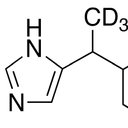Ubiquitin-specific protease 22 acts as an oncoprotein to maintain glioma malignancy through deubiquitinating B cell-specific Moloney murine leukemia virus integration site 1 for stabilization.
Palabras clave
Abstracto
Ubiquitin-specific protease 22 (USP22) is a member of the "death-from-cancer" signature, which plays a key role in cancer progression. Previous evidence has shown that USP22 is overexpressed and correlates with poor prognosis in glioma. The effect and mechanism of USP22 in glioma malignancy, especially cancer stemness, remain elusive. Herein, we find USP22 is more enriched in stem-like tumorspheres than differentiated glioma cells. USP22 knockdown inhibits cancer stemness in glioma cell lines. With a cell-penetrating TAT-tag protein, B cell-specific Moloney murine leukemia virus integration site 1 (BMI1), a robust glioma stem-cell marker, is found to mediate the effect of USP22 on glioma stemness. By immunofluorescence, USP22 and BMI1 are found to share similar intranuclear expression in glioma cells. By analysis with immunohistochemistry and bioinformatics, USP22 is found to positively correlate with BMI1 at the post-translational level only rather than at the transcriptional level. By immunoprecipitation and in vivo deubiquitination assay, USP22 is found to interact with and deubiquitinate BMI1 for protein stabilization. Microarray analysis shows that USP22 and BMI1 mutually regulate a series of genes involved in glioma stemness such as POSTN, HEY2, PDGFRA and ATF3. In vivo study with nude mice confirms the role of USP22 in promoting glioma tumorigenesis by regulating BMI1. All these findings indicate USP22 as a novel deubiquitinase of BMI1 in glioma. We propose a working model of the USP22-BMI1 axis, which promotes glioma stemness and tumorigenesis through oncogenic activation. Thus, targeting USP22 might be an effective strategy to treat glioma especially in those with elevated BMI1 expression.





